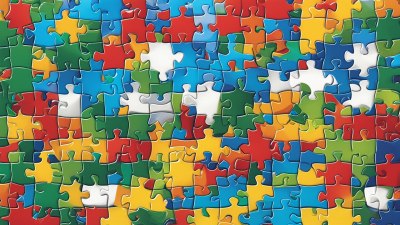When it comes to solving problems, everyone approaches challenges in their own unique way. Some people prefer to dive right in and figure things out as they go, while others take a more methodical, step-by-step approach. But have you ever wondered what kind of puzzle you would be based on your problem-solving skills?
Whether you’re quick to find creative solutions, enjoy taking your time to understand each piece, or thrive in complexity, there’s a puzzle that perfectly reflects your approach to challenges. This quiz will help you discover the kind of puzzle that best represents your problem-solving style. Are you a dynamic Rubik’s Cube, a classic jigsaw puzzle, or something else entirely?
Answer these questions to uncover which puzzle mirrors your thinking and how you tackle life’s challenges!
How Do You Typically Approach a Challenge?
Dive in and figure things out along the wayTake your time to plan and organize before startingBreak the problem down into smaller partsLook at the big picture and try to see how everything connectsWhen Faced with a Difficult Task, How Do You React?
Excited for the challenge and ready to jump inCalmly, taking things one step at a timeFocused, analyzing each detail to find a solutionI prefer to brainstorm creative ways to solve itWhat’s Your Ideal Problem-Solving Environment?
A fast-paced, dynamic situation where you can try different approachesA quiet, focused space where you can take your timeAn organized setting where you can see all the details clearlySomewhere relaxed where you can think freely and explore ideasWhat’s Your Biggest Strength When Solving Problems?
Quick thinking and adaptabilityPatience and persistenceAttention to detail and precisionCreativity and out-of-the-box thinkingHow Do You Handle Stress When Problem-Solving?
I thrive under pressure and move quicklyI stay calm and tackle the problem one piece at a timeI focus on the task at hand, paying attention to every detailI take a step back and look for new, creative solutionsWhat Kind of Problems Do You Enjoy Solving the Most?
Complex challenges that require quick thinkingLarge, intricate problems that need patienceDetailed tasks that require precision and accuracyCreative or abstract problems that allow for unique solutionsHow Do You Feel When You’ve Solved a Problem?
Energized and ready for the next challengeSatisfied, knowing that my patience paid offProud of the accuracy and thoroughness of my workInspired, excited to apply my creativity to the next challenge 



















